Click here and press the right key for the next slide.
(This may not work on mobile or ipad. You can try using chrome or firefox, but even that may fail. Sorry.)
also ...
Press the left key to go backwards (or swipe right)
Press n to toggle whether notes are shown (or add '?notes' to the url before the #)
Press m or double tap to slide thumbnails (menu)
Press ? at any time to show the keyboard shortcuts

Preview: Ethics vs Physics
[email protected]
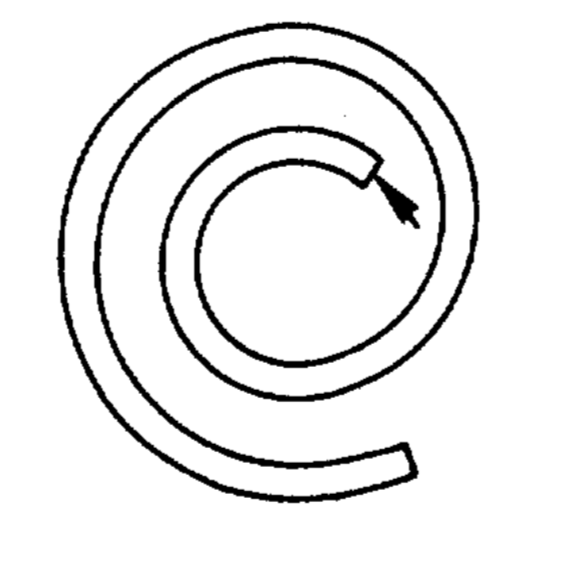
McCloskey et al. (1980, p. figure 2B)
‘In putting forward an account of light, the first point I want to draw to your attention is that it is possible for there to be a difference between the sensation that we have of it, that is, the idea that we form of it in our imagination through the intermediary of our eyes, and what it is in the objects that produces the sensation in us, that is, what it is in the flame or in the Sun that we term ‘light’’
Descartes, The World (AT 3)

sensory perceptions
do not reveal
the natures of physical phenomena
Broadly perceptual processes
influence what seems obvious to you.

McCloskey et al. (1980, p. figure 2B)
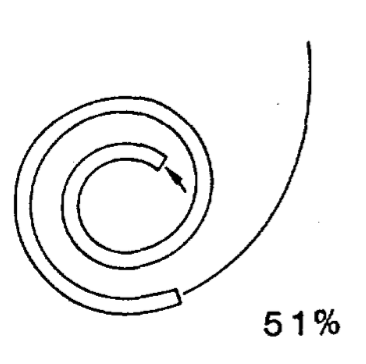
McCloskey et al. (1980, p. figure 2D)
representational momentum
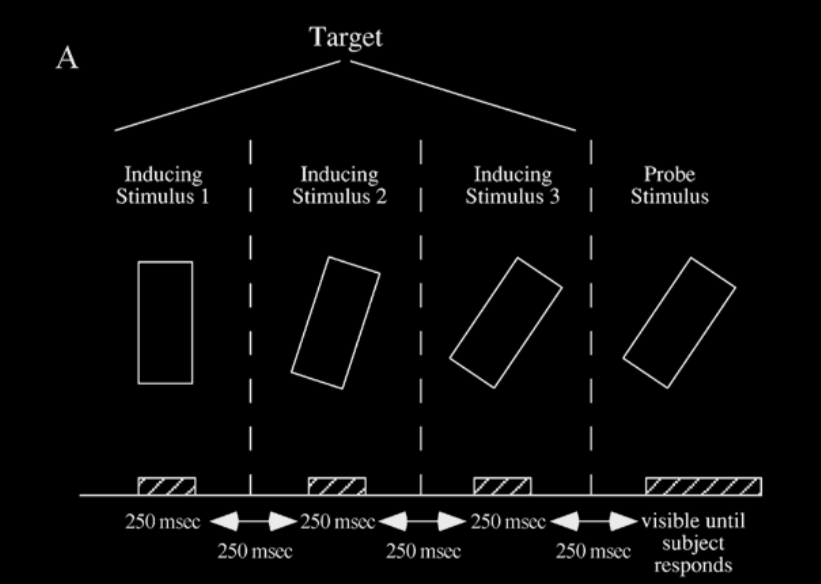

Hubbard 2005, figure 1a; redrawn from Freyd and Finke 1984, figure 1
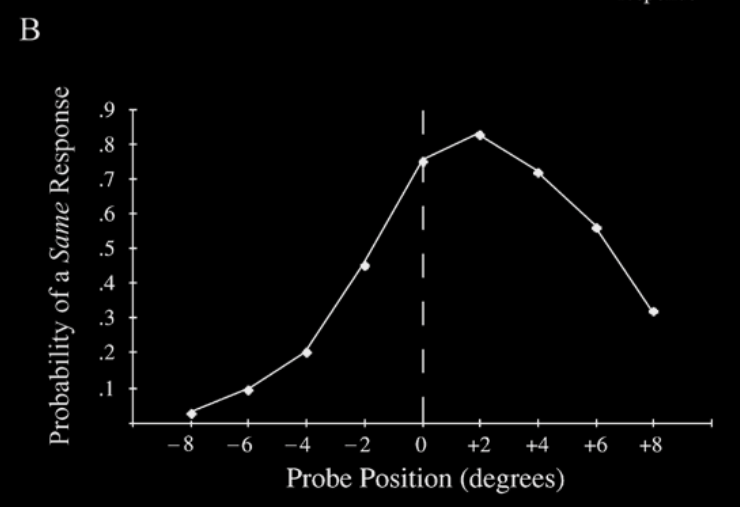
Hubbard 2005, figure 1b; drawn from Freyd and Finke 1984, table 1
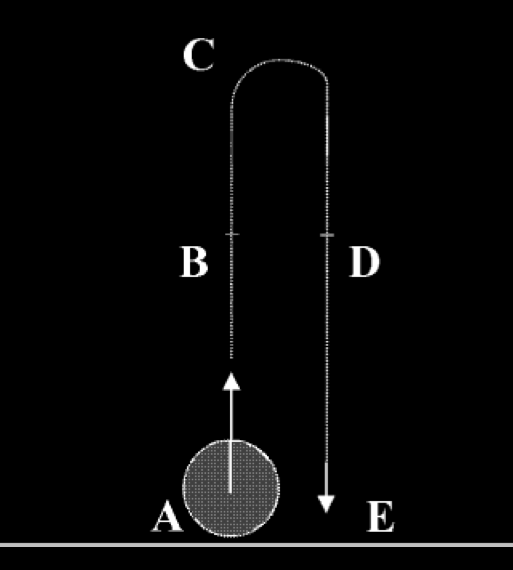
Kozhevnikov & Hegarty (2001, figure 1)
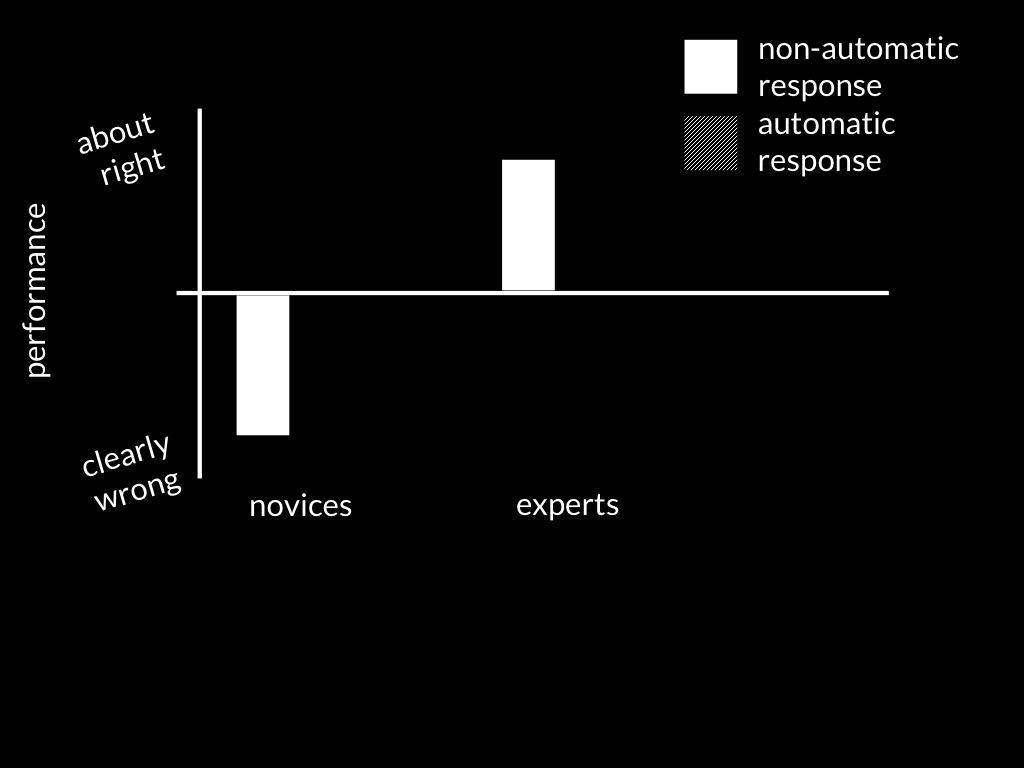
simplified from Kozhevnikov & Hegarty (2001)
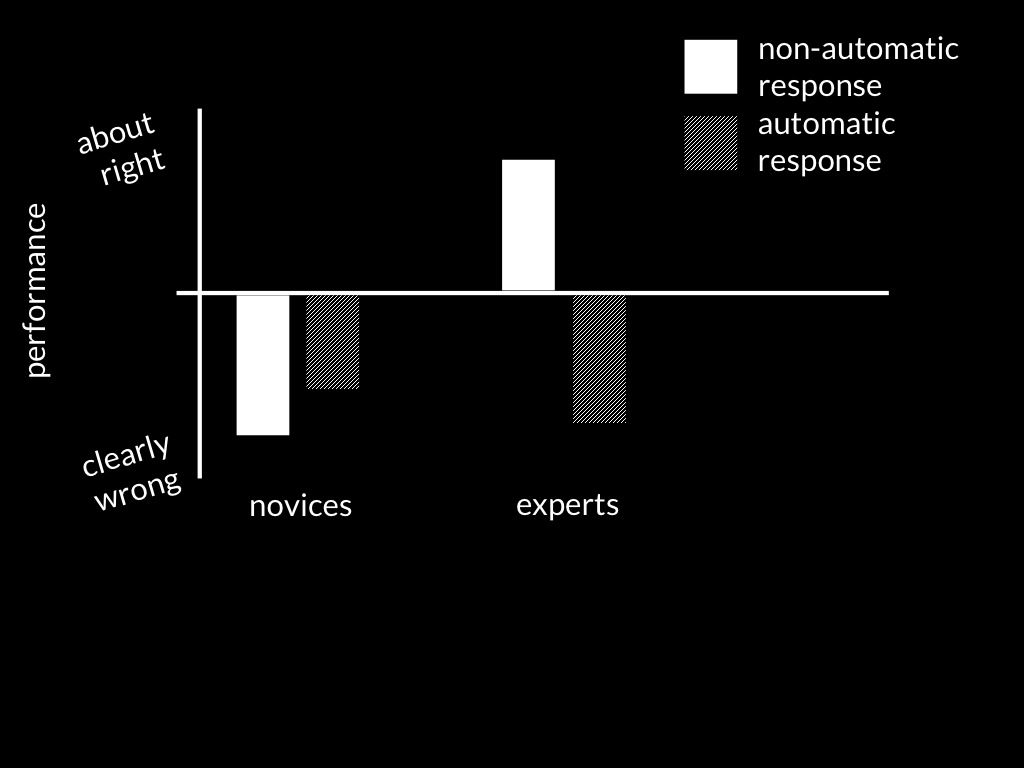
simplified from Kozhevnikov & Hegarty (2001)
speed vs accuracy
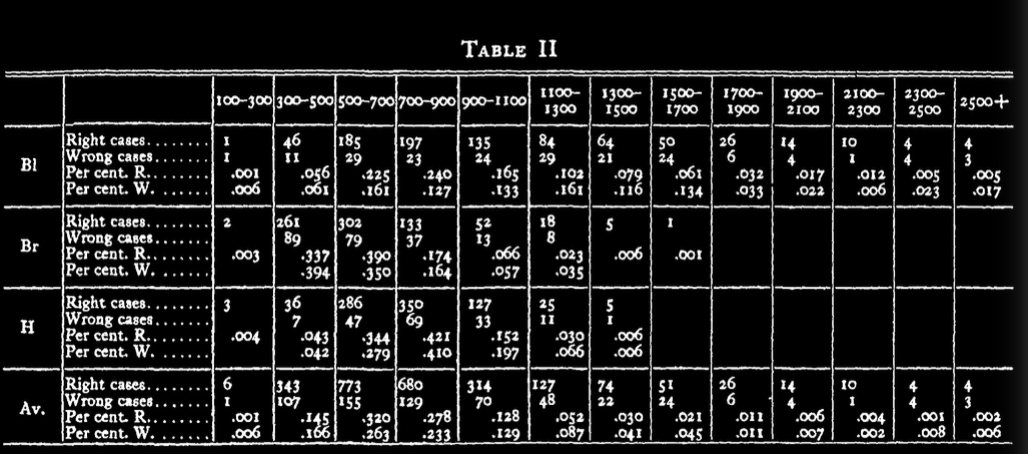
Henmon (1911, table 2)
‘the wrong judgments are in general shorter’
| process | priority | content (physics) | content (ethics) |
| fast | utility over consistency | impetus | Thomson-esque |
| slow | consistency over utility | Newtonian | ??? |
‘To extrapolate objects’ motion on the basis of [e.g. Newtonian] physical principles, one should have assessed and evaluated the presence and magnitude of such imperceptible forces as friction and air resistance ... This would require a time-consuming analysis that is not always possible.
‘In order to have a survival advantage, the process of extrapolation should be fast and effortless, without much conscious deliberation.
‘Impetus theory allows us to extrapolate objects’ motion quickly and without large demands on attentional resources.’
Kozhevnikov and Heggarty (2001, p. 450)
ethics?
If we applied Thomson’s method (or Rawls’) in the case in attempting to discover things about the physical world, we would unable to do things like landing a robot on a comet.
If we applied Thomson’s method (or Rawls’) in the case in attempting to discover things about ethical principles, we would unable to deal with unfamiliar problems.
This is because whether something seems obvious (even after much reflection---see Aristotle) depends on fast processes. And fast processes gain speed by sacrificing accuracy.
| process | priority | content (physics) | content (ethics) |
| fast | utility over consistency | impetus | Thomson-esque |
| slow | consistency over utility | Newtonian | ??? |
where’s the argument?
consequences?
Could scientific discoveries concerning moral psychology undermine, or support, ethical principles?
No!
Could scientific discoveries concerning moral psychology change how humans do ethics?
Maybe.